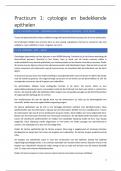-------------------------------------------------------------------------------------------------------------------------------
Hans Morgenthau. 1988. “The Main Problems of International Law.” Politics Among
Nations: The Struggle for Power and Peace. New York: Alfred Knopf, pp. 209-242
-------------------------------------------------------------------------------------------------------------------------------
● The General Nature of International Law
○ The modern system of international law is the result of the great political
transformation that marked the transition from the Middle Ages to the modern
period of history
○ There was no supreme authority over states other than themselves thus
becoming sovereign
○ It was inevitable that these sovereign nations were to be bound by some form of
international law for their relations
○ There had to be some form of set rules to acquiring new territory and claiming
seas etc
○ A core of rules of international law laying down the rights and duties of states in
relation to each other developed in the fifteenth and sixteenth centuries
■ 1648 when the Treaty of Westphalia brought the religious wars to an end
and made the territorial state the cornerstone of the modern state system
■ On this foundation in later centuries thousands of treaties, tribunals, and
innumerable decisions created the modern communications of
international exchange of goods and services, and the great number of
international organizations which most nations have cooperated for the
furtherance of their common interests
○ It is also worth mentioning, in view of a widespread misconception in this respect,
that during the four hundred years of its existence international law has in most
instances been scrupulously observed
■ International law is present in everyday life yet many don't see it and point
to big things like the LON and UN, but it's much larger than that
○ The decentralized nature of international law is the inevitable result of the
decentralized structure of international society
■ Domestic law can be enforced by the holders of power, it is hard to
enforce international law
○ International law owes its existence and operation to two factors, both
decentralized in character: identical or complementary interests of individual
states and the distribution of power among them
○ International law is overwhelmingly the result of objective social forces
○ The balance of power operates as a decentralizing force only in the form of a
general deterrent against violations of international law and in the exceptional
cases when a violation of international law calls for a law-enforcement action
● The Legislative Function in International Law
○ It's Decentralized Character
■ In our contemporary domestic societies, the most important rules of law
are created by legislators and courts; that is to say, by centralized
agencies that create law either for all members of the national community,
, as do Congress and the Supreme Court of the US, for for certain regional
groups, as do state legislatures, city councils, and regional and local
courts
■ Two forces in the international system that create law
● Necessity and mutual consent
■ The main instrumentality by which international law is creates is the
international treaty
● Only binding to those that sign it
■ From this decentralized character of the legislative function two
consequences follow for international law
● Many matters bearing upon international relations, such as
immigration and many aspects of economic policies, are not
regulated by international law
● Many interests are also not shared and different positions held
● Insecurity and confusion frequently reign as well
○ If one wants to know what the US is bound by you would
have to check every treaty ever signed etc
■ Also in order to know the sum total of the rules of international law binding
in a particular period of history throughout the world, it would be
theoretically necessary to make similar compilations with regard to all
nations of the world
■ A disagreement can be seen in water borders as many state claim 3 miles
off coast some 12 miles like Poland
■ Only those branches of international, generally of a technical or
humanitarian nature, which have been codified in general agreements,
escape in a certain measure this weakness of uncertainty and confusion
○ Interpretation and Binding Force
■ The need to substitute the unanimous consent of all subject of
international law for genuine international legislation gives rise to yet
another type of complication peculiar to international law
● This is the problem of ascertaining the meaning of pervious
international treaties, of the rights they confer, of the obligations
they impose
■ Treaties that are written in general language etc can be interpreted and
this makes enforcing, abiding etc difficult
■ In the international field, it is the subjects of the law themselves that not
only legislate for themselves but are also the supreme authority for
interpreting and giving concrete meaning to their own legislative
enactments
● Corruption and self interested interpretations occur
■ Another weakness of IL in legislative point of view is the uncertainty as to
whether certain international treaty, duly signed and ratified, actually
contains, in whole or in part, valid rules of international law binding upon
the signatories
, ■ Briand-Kellogg Pact of 1928
● All nations agreed to renounce war as an instrument of national
policy in their relations with one another
● There is no answer to questions like is this just a principle, is this
enforceable, in what cases etc
■ 1936 the League of Nations sanctions against Italy failed, and in the
following years the wholesale violations of the most important provisions
of the Covenant were treated with indifference by all governments
concerned
● International law is constantly violated
● The Judicial Function in International Law
○ A legal system might still be capable of holding in check the power aspiration of
it's subjects if there existed judicial agencies that could speak with authority
whenever a dissension occurred with regard to the existence of international law
○ International law is deficient in all three fundamental of an efficient judicial
system: compulsory jurisdiction, hierarchy of judicial decisions, and the
application of the rule of stare decisis at least to the highest court
○ Compulsory Jurisdiction
■ The sole source for jurisdiction of international courts is the will of the
states submitting disputes for adjudication
■ It is axiomatic in international law that no state can be compelled against
its will to submit a dispute with an other state to an international triubula
● In other words a state can only go to court with another with
consent from both
■ In case of so-called isolated arbitration - that is, when the parties agree to
submit one individual dispute, after it has occurred, to the jurisdiction of
an international tribunal - this principle manifests itself simply in the
requirement of a contractual obligation between the parties establishing
the jurisdiction of the court
■ In the case of so-called institutional arbitration - that is, when a whole
class of disputes are submitted in advance of their occurrence to
international adjudication by a general agreement - the consent of the
parties is generally required for two different stages in the proceedings
● First, it is the jurisdiction of an international court
● Second, it is required for the particular agreement - concluded
after a particular dispute has arisen - in which the general
agreement provides international adjudication
■ States are very careful were jurisdiction is given
○ The Optional Clause
■ It is obvious that under such circumstances it is hardly possible to speak
of a general obligation on the part of nations to submit disputes to judicial
settlement in advance of their occurrence
, ■ The requirement of a special agreement concerning the particular dispute
to be adjudicated and the qualification of a general agreement by
reservations virtually preclude compulsory litigation
■ It is for the purpose of assimilating the international judicial function, at
least with regard to certain classes of disputes, to the strict compulsion of
domestic litigation that Article 36 of the Statute of the Permanent Court of
International Justice has created the so-called optional clause
● The provision gives the signatories of the Statute the opportunity
to recognize as compulsory ipso facto and without special
agreement, in relation to any other state accepting the same
obligation, the jurisdiction of the court in all legal disputes
■ The declaration of the US 1946, accepting the compulsory jurisdiction of
the ICJ is the prototype of an acceptance so weakened by far reaching
reservations as to produce strict legal obligation to the vanishing point
● This declaration shall not apply to
○ A - disputes the solution of which the parties shall entrust
to other tribunals by virtue of agreements already in
existence or which may be concluded in the future
○ B - disputes with regard to matters which are essentially
within the domestic jurisdiction of the USA as determined
by the USA
○ C - disputes arising under multilateral treaty, unless 1 all
parties to the treaty affected by the decision are also
parties to the cae before the court, or 2 the USA specially
agrees to jurisdiction
■ B essentially means what is the opinion of the USA, basically a free pass
to deny jurisdiction whenever
■ Reservation C takes care of all the loopholes people might find in B
■ Thus, in the end, the development of compulsory jurisdiction under the
optional clause reverts to where it started from; the preservation, in a
large measure and for the most important disputes, of national freedom of
action with regard to the jurisdiction of international courts
■ All theoretical and practical considerations point to the conclusion that the
optional clause has left the substance of the problem of compulsory
jurisdiction where it found it
○ International Courts
■ Since no legal system can be effective in limiting the activities of it's
subjects without compulsory jurisdiction over their disputes, the two other
fundamental problems of adjudication - the organization of the judicial
agencies and the effects of their decisions are of subordinate importance
■ Up to the establishment of the Permanent Court in 1920, judicial
organization in the international sphere was completely decentralized
Hans Morgenthau. 1988. “The Main Problems of International Law.” Politics Among
Nations: The Struggle for Power and Peace. New York: Alfred Knopf, pp. 209-242
-------------------------------------------------------------------------------------------------------------------------------
● The General Nature of International Law
○ The modern system of international law is the result of the great political
transformation that marked the transition from the Middle Ages to the modern
period of history
○ There was no supreme authority over states other than themselves thus
becoming sovereign
○ It was inevitable that these sovereign nations were to be bound by some form of
international law for their relations
○ There had to be some form of set rules to acquiring new territory and claiming
seas etc
○ A core of rules of international law laying down the rights and duties of states in
relation to each other developed in the fifteenth and sixteenth centuries
■ 1648 when the Treaty of Westphalia brought the religious wars to an end
and made the territorial state the cornerstone of the modern state system
■ On this foundation in later centuries thousands of treaties, tribunals, and
innumerable decisions created the modern communications of
international exchange of goods and services, and the great number of
international organizations which most nations have cooperated for the
furtherance of their common interests
○ It is also worth mentioning, in view of a widespread misconception in this respect,
that during the four hundred years of its existence international law has in most
instances been scrupulously observed
■ International law is present in everyday life yet many don't see it and point
to big things like the LON and UN, but it's much larger than that
○ The decentralized nature of international law is the inevitable result of the
decentralized structure of international society
■ Domestic law can be enforced by the holders of power, it is hard to
enforce international law
○ International law owes its existence and operation to two factors, both
decentralized in character: identical or complementary interests of individual
states and the distribution of power among them
○ International law is overwhelmingly the result of objective social forces
○ The balance of power operates as a decentralizing force only in the form of a
general deterrent against violations of international law and in the exceptional
cases when a violation of international law calls for a law-enforcement action
● The Legislative Function in International Law
○ It's Decentralized Character
■ In our contemporary domestic societies, the most important rules of law
are created by legislators and courts; that is to say, by centralized
agencies that create law either for all members of the national community,
, as do Congress and the Supreme Court of the US, for for certain regional
groups, as do state legislatures, city councils, and regional and local
courts
■ Two forces in the international system that create law
● Necessity and mutual consent
■ The main instrumentality by which international law is creates is the
international treaty
● Only binding to those that sign it
■ From this decentralized character of the legislative function two
consequences follow for international law
● Many matters bearing upon international relations, such as
immigration and many aspects of economic policies, are not
regulated by international law
● Many interests are also not shared and different positions held
● Insecurity and confusion frequently reign as well
○ If one wants to know what the US is bound by you would
have to check every treaty ever signed etc
■ Also in order to know the sum total of the rules of international law binding
in a particular period of history throughout the world, it would be
theoretically necessary to make similar compilations with regard to all
nations of the world
■ A disagreement can be seen in water borders as many state claim 3 miles
off coast some 12 miles like Poland
■ Only those branches of international, generally of a technical or
humanitarian nature, which have been codified in general agreements,
escape in a certain measure this weakness of uncertainty and confusion
○ Interpretation and Binding Force
■ The need to substitute the unanimous consent of all subject of
international law for genuine international legislation gives rise to yet
another type of complication peculiar to international law
● This is the problem of ascertaining the meaning of pervious
international treaties, of the rights they confer, of the obligations
they impose
■ Treaties that are written in general language etc can be interpreted and
this makes enforcing, abiding etc difficult
■ In the international field, it is the subjects of the law themselves that not
only legislate for themselves but are also the supreme authority for
interpreting and giving concrete meaning to their own legislative
enactments
● Corruption and self interested interpretations occur
■ Another weakness of IL in legislative point of view is the uncertainty as to
whether certain international treaty, duly signed and ratified, actually
contains, in whole or in part, valid rules of international law binding upon
the signatories
, ■ Briand-Kellogg Pact of 1928
● All nations agreed to renounce war as an instrument of national
policy in their relations with one another
● There is no answer to questions like is this just a principle, is this
enforceable, in what cases etc
■ 1936 the League of Nations sanctions against Italy failed, and in the
following years the wholesale violations of the most important provisions
of the Covenant were treated with indifference by all governments
concerned
● International law is constantly violated
● The Judicial Function in International Law
○ A legal system might still be capable of holding in check the power aspiration of
it's subjects if there existed judicial agencies that could speak with authority
whenever a dissension occurred with regard to the existence of international law
○ International law is deficient in all three fundamental of an efficient judicial
system: compulsory jurisdiction, hierarchy of judicial decisions, and the
application of the rule of stare decisis at least to the highest court
○ Compulsory Jurisdiction
■ The sole source for jurisdiction of international courts is the will of the
states submitting disputes for adjudication
■ It is axiomatic in international law that no state can be compelled against
its will to submit a dispute with an other state to an international triubula
● In other words a state can only go to court with another with
consent from both
■ In case of so-called isolated arbitration - that is, when the parties agree to
submit one individual dispute, after it has occurred, to the jurisdiction of
an international tribunal - this principle manifests itself simply in the
requirement of a contractual obligation between the parties establishing
the jurisdiction of the court
■ In the case of so-called institutional arbitration - that is, when a whole
class of disputes are submitted in advance of their occurrence to
international adjudication by a general agreement - the consent of the
parties is generally required for two different stages in the proceedings
● First, it is the jurisdiction of an international court
● Second, it is required for the particular agreement - concluded
after a particular dispute has arisen - in which the general
agreement provides international adjudication
■ States are very careful were jurisdiction is given
○ The Optional Clause
■ It is obvious that under such circumstances it is hardly possible to speak
of a general obligation on the part of nations to submit disputes to judicial
settlement in advance of their occurrence
, ■ The requirement of a special agreement concerning the particular dispute
to be adjudicated and the qualification of a general agreement by
reservations virtually preclude compulsory litigation
■ It is for the purpose of assimilating the international judicial function, at
least with regard to certain classes of disputes, to the strict compulsion of
domestic litigation that Article 36 of the Statute of the Permanent Court of
International Justice has created the so-called optional clause
● The provision gives the signatories of the Statute the opportunity
to recognize as compulsory ipso facto and without special
agreement, in relation to any other state accepting the same
obligation, the jurisdiction of the court in all legal disputes
■ The declaration of the US 1946, accepting the compulsory jurisdiction of
the ICJ is the prototype of an acceptance so weakened by far reaching
reservations as to produce strict legal obligation to the vanishing point
● This declaration shall not apply to
○ A - disputes the solution of which the parties shall entrust
to other tribunals by virtue of agreements already in
existence or which may be concluded in the future
○ B - disputes with regard to matters which are essentially
within the domestic jurisdiction of the USA as determined
by the USA
○ C - disputes arising under multilateral treaty, unless 1 all
parties to the treaty affected by the decision are also
parties to the cae before the court, or 2 the USA specially
agrees to jurisdiction
■ B essentially means what is the opinion of the USA, basically a free pass
to deny jurisdiction whenever
■ Reservation C takes care of all the loopholes people might find in B
■ Thus, in the end, the development of compulsory jurisdiction under the
optional clause reverts to where it started from; the preservation, in a
large measure and for the most important disputes, of national freedom of
action with regard to the jurisdiction of international courts
■ All theoretical and practical considerations point to the conclusion that the
optional clause has left the substance of the problem of compulsory
jurisdiction where it found it
○ International Courts
■ Since no legal system can be effective in limiting the activities of it's
subjects without compulsory jurisdiction over their disputes, the two other
fundamental problems of adjudication - the organization of the judicial
agencies and the effects of their decisions are of subordinate importance
■ Up to the establishment of the Permanent Court in 1920, judicial
organization in the international sphere was completely decentralized











